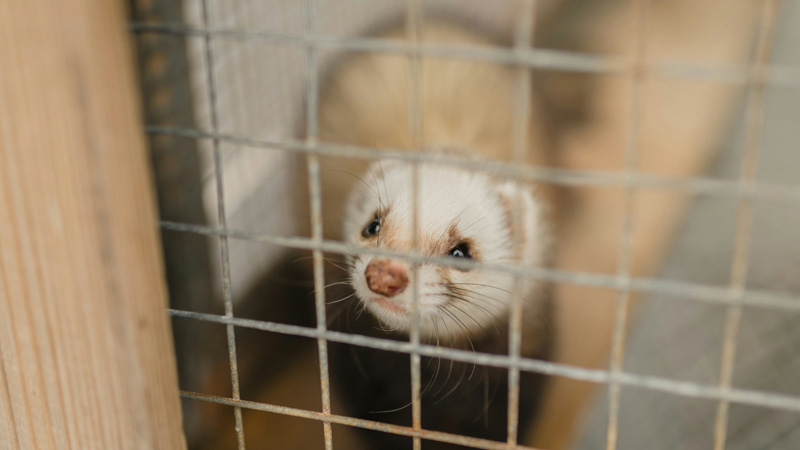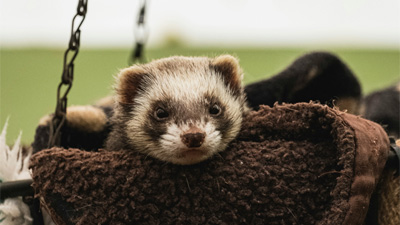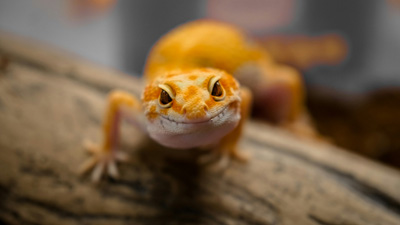Why Are Ferrets Illegal in the US?

Photo by Nathaniel Yeo on Unsplash
Ferrets, those lovable and curious creatures, have captured the hearts of many around the world. However, in the United States, owning a ferret as a pet is illegal in some states and municipalities. It might seem puzzling to some, especially considering how popular and widely accepted ferrets are in other countries.
In this article, we will explore the reasons behind the legal restrictions on ferrets in the US, including concerns about the environment, public health, and the potential impact on native wildlife.
A Patchwork of Laws
The legality of owning a ferret varies from state to state in the US. Currently, California and Hawaii are the only states that have outright bans on keeping ferrets as pets. In the remaining states, it is typically up to local jurisdictions to determine whether ferret ownership is allowed. This patchwork of laws can be confusing and frustrating for those who wish to own a ferret but live in an area where it is prohibited.
Environmental Concerns
One of the main reasons for prohibiting ferret ownership is the concern over the potential environmental impact of escaped or released ferrets. Ferrets are non-native species in the US, and there is worry that if they were to escape into the wild, they could establish feral populations and disrupt local ecosystems.
Ferrets are highly efficient predators, and their introduction into a new environment could lead to the decline or extinction of native species. They have been known to prey on birds, small mammals, reptiles, and amphibians. This concern is particularly crucial in states with delicate ecosystems and endangered species, where the introduction of a new predator could have devastating consequences.
Public Health Concerns
Another factor contributing to the prohibition of ferret ownership is the concern over the potential transmission of diseases from ferrets to humans. Like many animals, ferrets can carry certain diseases and parasites that can be transmitted to humans, including the potentially serious zoonotic disease, rabies.
Rabies is a viral disease that affects the central nervous system and is almost always fatal if left untreated. While there are no known cases of ferrets transmitting rabies to humans in the US, the fear of potential transmission is a significant factor in the decision to ban ferret ownership. There is also concern about other diseases such as H1N1 (swine flu), which can theoretically be transmitted from ferrets to humans.
Furthermore, ferrets are obligate carnivores, which means they have specific dietary needs that include raw meat. This can pose a challenge in terms of food safety and hygiene for keeping ferrets as pets. Improper handling or preparation of raw meat could lead to foodborne illnesses and pose a risk to both ferret owners and the general public.
Opposition and Advocacy
While there are valid environmental and public health concerns associated with ferret ownership, there are also passionate advocates who argue for lifting the bans on ferrets in certain areas. These advocates argue that responsible ownership, proper veterinary care, and education can address many of the concerns surrounding ferret ownership.
Proponents of legalizing ferrets often point to the fact that ferrets are legal and widely accepted as pets in many other countries, including Canada, the United Kingdom, Australia, and New Zealand, without causing significant environmental or public health issues. They argue that with appropriate regulations and responsible ownership, the risks can be minimized.
Advocacy groups and individuals have been working to educate the public and lawmakers about the benefits of legalizing ferret ownership and addressing concerns through responsible legislation and regulation. They argue that outright bans on ferrets are unfair to responsible and knowledgeable ferret owners who can provide safe and enriching environments for their pets.
The Future of Ferret Ownership
The future of ferret ownership in the US is uncertain. Some states and municipalities have taken steps to reconsider the legality of ferrets as pets. For example, in 2020, the city of New York legalized ferret ownership after a long-standing ban that lasted over 20 years. However, other areas have remained steadfast in their prohibition.
As with any contentious issue, finding a balance between environmental protection, public health concerns, and individual freedoms can be challenging. It may require comprehensive regulation, education, and the involvement of experts in environmental science, public health, and animal welfare to create a framework that allows for responsible ferret ownership while minimizing the potential risks.
Conclusion
The prohibition of ferret ownership in the US is primarily driven by concerns over potential environmental impact and public health risks. The fear of escaped or released ferrets establishing feral populations and preying on native species, as well as the potential transmission of diseases from ferrets to humans, has led to the banning of ferrets in certain states and municipalities.
However, there are passionate advocates who argue for lifting the bans, pointing to responsible ownership, proper regulation, and education as ways to mitigate the risks. The future of ferret ownership in the US remains uncertain, and finding a balance between environmental protection, public health concerns, and individual freedoms is a complex task.
In the coming years, ongoing dialogue, research, and advocacy will play an essential role in determining whether the legal landscape around ferret ownership in the US will change. Until then, individuals interested in owning ferrets should familiarize themselves with local laws and regulations to ensure they are compliant.
You May Also Like
 Other PetsAre Ferrets Hard To Take Care Of?
Other PetsAre Ferrets Hard To Take Care Of? Other PetsDo Ferrets Get Along with Cats?
Other PetsDo Ferrets Get Along with Cats? Other Pets5 Fascinating Facts About Ferrets, Did You Know?
Other Pets5 Fascinating Facts About Ferrets, Did You Know? Help & AdviceExploring 6 of The Friendliest Small Pets
Help & AdviceExploring 6 of The Friendliest Small Pets Help & AdviceTop 10 Exotic Pets Perfect for Apartment Living
Help & AdviceTop 10 Exotic Pets Perfect for Apartment Living Help & AdviceExploring 10 Easiest Exotic Pets to Take Care Of
Help & AdviceExploring 10 Easiest Exotic Pets to Take Care Of